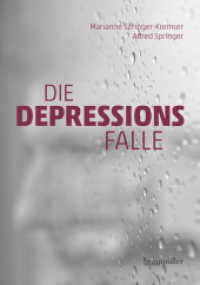Full Description
The relationship between research and practice has long been an area of interest for researchers, policy makers, and practitioners alike. One obvious arena where mathematics education research can contribute to practice is the design and implementation of school mathematics curricula. This observation holds whether we are talking about curriculum as a set of broad, measurable competencies (i.e., standards) or as a comprehensive set of resources for teaching and learning mathematics. Impacting practice in this way requires fine-grained research that is focused on individual student learning trajectories and intimate analyses of classroom pedagogical practices as well as large-scale research that explores how student populations typically engage with the big ideas of mathematics over time. Both types of research provide an empirical basis for identifying what aspects of mathematics are important and how they develop over time.
This book has its origins in independent but parallel work in Australia and the United States over the last 10 to 15 years. It was prompted by a research seminar at the 2017 PME Conference in Singapore that brought the contributors to this volume together to consider the development and use of evidence-based learning progressions/trajectories in mathematics education, their basis in theory, their focus and scale, and the methods used to identify and validate them. In this volume they elaborate on their work to consider what is meant by learning progressions/trajectories and explore a range of issues associated with their development, implementation, evaluation, and on-going review. Implications for curriculum design and future research in this field are also considered.
Contributors are: Michael Askew, Tasos Barkatsas, Michael Belcher, Rosemary Callingham, Doug Clements, Jere Confrey, Lorraine Day, Margaret Hennessey, Marj Horne, Alan Maloney, William McGowan, Greg Oates, Claudia Orellana, Julie Sarama, Rebecca Seah, Meetal Shah, Dianne Siemon, Max Stephens, Ron Tzur, and Jane Watson.
Contents
Acknowledgements
Figures and Tables
Notes on Contributors
Introduction
Dianne Siemon, Tasos Barkatsas and Rebecca Seah
1 Knowing and Building on What Students Know: The Case of Multiplicative Thinking
Dianne Siemon
2 Learning Trajectories in Early Mathematics Education
Julie Sarama and Douglas H. Clements
3 HLT: A Lens on Conceptual Transition between Mathematical "Markers"
Ron Tzur
4 Using Digital Diagnostic Classroom Assessments Based on Learning Trajectories to Drive Instruction
Jere Confrey, William McGowan, Meetal Shah, Michael Belcher, Margaret Hennessey and Alan Maloney
5 Researching Mathematical Reasoning: Building Evidence-Based Resources to Support Targeted Teaching in the Middle Years
Dianne Siemon and Rosemary Callingham
6 Reframing Mathematical Futures II: Developing Students' Algebraic Reasoning in the Middle Years
Marj Horne, Max Stephens and Lorraine Day
7 A Learning Progression for Geometric Reasoning
Rebecca Seah and Marj Horne
8 Statistics and Probability: From Research to the Classroom
Rosemary Callingham, Jane Watson and Greg Oates
9 Investigating Mathematics Students' Motivations and Perceptions
Tasos Barkatsas and Claudia Orellana
10 Secondary Students' Mathematics Education Goal Orientations
Tasos Barkatsas and Claudia Orellana
Epilogue
Mike Askew








